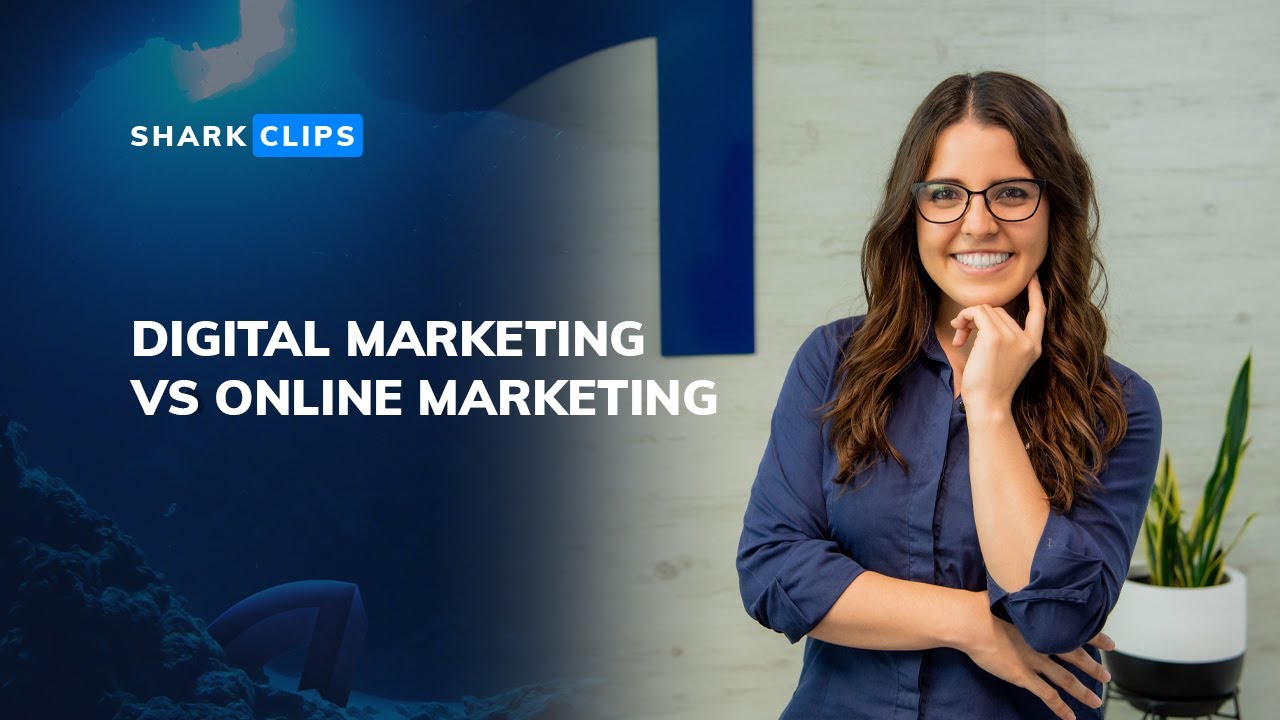[display-name-category]
[post_author]
The digital marketing industry is in constant flux, and the new terms associated with these changes seem endless.
Though you might be stressing over some of the terms getting thrown around, you don’t have to be concerned. We’re here to help you master the basics and deliver digital marketing services with confidence.
Let’s start by exploring the difference between the terms online marketing and digital marketing. The video below is a quick overview of both terms.
As mentioned in our Shark Clip, online marketing uses digital channels and relies on the internet to connect with its audience.
“Online marketing” includes some common strategies, such as:
- Email Marketing
- Social Media Marketing
- PPC Marketing
- SEO
- Influencer Marketing
- Affiliate Marketing
“Digital marketing”, on the other hand, refers to using digital channels, devices, and platforms (regardless of whether they are online or not) to build or promote your marketing message. So, while the above are still considered digital marketing, the following terms are as well:
- TV
- Digital Billboards
- Digital Games
- Radio
- SMS Text
For example, let’s say you walk by a boardwalk and notice a massive digital screen on a boat cruising on the water. The digital billboard on the ship is featuring ads for local restaurants and bars in the area.
This form of marketing is digital, but not online. It leverages technology, but it is not dependent on the internet.
Moreover, digital marketing may also refer to offline ads on digital devices. Buying ad placements with a local cable company (offline ads) may lead to display ads on TVs (a digital device) and so on.
Understanding Strategies
Though we’ve discussed them separately, we can focus on how these types of marketing, internet connection or not, can contribute to your overall marketing strategy.
These strategies are rooted in technology so have a great deal to offer advertisers and evolve faster than most other methods.
Below is a deeper look into the methods mentioned above. Review them carefully to mark the differences between each and determine which would serve your business best.
SEO (Search Engine Optimization): The job of search engines is to find content, understand its meaning, and serve the most relevant information to the user. SEO practices are a series of adjustments that advertisers can carry out to help the search engines find them and “trust” them for these searches.
SEO optimizations improve your “elevator pitch.” Here are some standard practices:
- Match content phrasing with the way users are searching for your product
- Curate titles, descriptions, and images to match the users’ intent
- Monitor page speed
- Leverage link building and backlinks (referencing other pages)
- Implement keywords into your website text to match the search query language
PPC (Pay-per-click): This marketing model drives traffic to websites through ad placements. Advertisers pay a publisher (typically a search engine) every time a user clicks on their ad link. This ad model is available on search engines (Google, Bing), social networks (Facebook), Facebook Ads, Twitters, LinkedIn, and websites within platform networks. There are a myriad of options for targeting users through PPC marketing and reconnecting with them to close a sale.
Some examples of pay-per-click advertising are:
- Display Advertising: The Display Network is part of a Google business ads. Watch this video to understand the benefits that it can offer your campaigns. This network not only provides excellent cost-per-click deals as demand is low, but it also serves for lead generation.
- Social Media Marketing: Social networks bring in more than 30% of website visits. Every day, billions of users spend hours on platforms, offering businesses opportunities to connect that they can’t afford to miss.
If you don’t have a YouTube account, Watch this video to learn more about this form of social media and how its video format can help you engage with your audience.
- Retargeting Campaigns: Remarketing allows brands or a PPC agency to reconnect with past website visitors or clients. The strategy can drive higher revenue as case studies and stats show that visitors remarketed with Display ads are 70% more likely to purchase from you.
Conclusion
As we’ve mentioned above, there are numerous benefits to both digital and online marketing. Our post reviews the basic terms that address some of the confusion that occurs when getting started with PPC.
Working with our partners and clients gives us insights into these common concerns, which we post about every week. To stay in the loop on all types of digital marketing, follow our blog to get updates directly in your email. We’re here to help!





